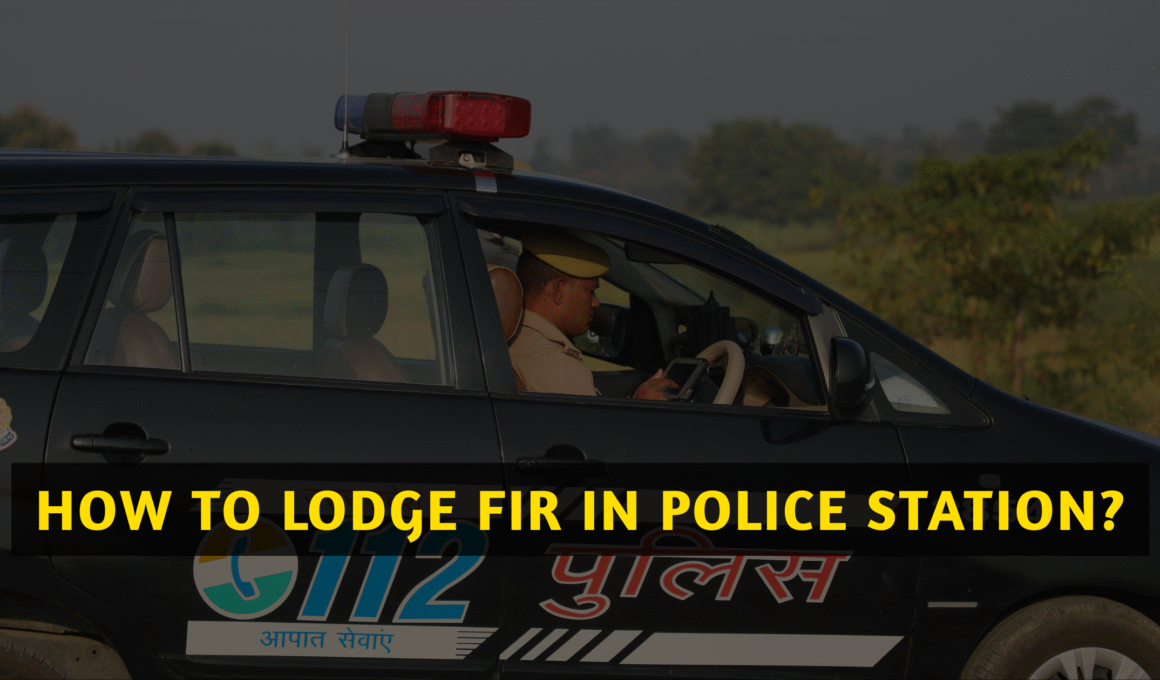Nisha was in her car when a group of masked men blocked her path. Nobody was there to help, and she was forced to hand over all the money, jewelry, gadgets and other valuables to them. She could not even scream due to extreme fear, because they had knife stuck to her neck. One wrong move and she could lose her life. When they left, it took some time for Nisha to understand what happened. Thankfully, they did not take her car. After gaining full senses, Nisha rushed towards the nearest Police Station to report the matter. But she did not know how to lodge FIR in Police Station. This traumatic episode made Nisha understand why knowing small legal things is crucial. To make sure you do not end up confused like Nisha, here is an explainer of how to register a First Information Report. But first thing to know is when an FIR is registered.
When FIR is Registered?
The registration of First Information Report or FIR, is not a regular course whenever someone approaches the Police. FIR is registered for specific offences. All kinds of cognizable offences under the Bharatiya Nyaya Sanhita or any other law may be reported to the Police for FIR registration. Complaints of cognizable offences, referred by Magistrates to the Police for inquiry are also reduced into an FIR. In addition, all of the following incidents or occurrences which need to be investigated, as mentioned below:
- Suicides
- Accidental death
- Accidental fire
- Straying of cattle
- Missing person (where there is suspicion of a cognizable offence
- Non-Cognizable case endorsed to the Police for inquiry
- Cases of abetment of an offence, once decided to be put before a Magistrate
- Matter reported to Magistrate for action in cases of unlawful assembly
- When the Police arrest a person or a group in order to prevent the commission of a cognizable offence.
FIR in Cognizable Offence
While it is important to know how to lodge FIR in a Police Station, which cases can be reported for registration of FIR equally matters. Most of the time, people do not understand the seriousness and ask for FIR registration just to seek revenge on the opposite side. It does not matter to them to understand the legal technicalities. All they want is police pressure, and a material force behind their already yelled “I will sue you” and “You will go to jail”.
For such people, it is crucial to know that FIR can be lodged in cognizable offences only, as prescribed in law. Cognizable offences are those crimes in which the Police is entitled to arrest without warrant. These are serious crimes, usually punishable with imprisonment more than 3 years, death penalty or life imprisonment. The First Schedule under Bharatiya Nagarik Suraksha Sanhita lists cognizable offences. FIR can be registered only for those offences in the list.
Hence, if you think that you can register an FIR for a wrongly parked car or a neighbour who used loudspeakers during a wedding, things may not be as you assume.
How to Lodge an FIR in Police Station?
Knowledge is power, and at places like Police Station, legal awareness helps a lot. Rather than being scared or intimidated by anyone, you should know your legal rights. For someone who approaches the Police regarding commission of a serious (cognizable offence), it is important that an FIR is duly registered without any delay and in its genuine form. Given below are the particulars to be noted:
- Person having knowledge about a cognizable offence may visit the nearest police station;
- Find the officer-in-charge and explain to them what exactly happened and what you witnessed;
- The said information will be reduced in writing by the officer-in-charge;
- Or, the information reduced in writing may be read over to the informant/complainant under the direction of officer-in-charge;
- The same shall be signed by the complainant as well as officer-in-charge.
- The FIR shall be entered into the Police General Diary;
- The informant/complainant will also get a copy of the FIR lodged.
In case the person who visited the Police Station ends up being aggrieved because nobody listened or they refused to register an FIR, there is another option. They may send a written complaint to the Superintendent of Police (SP). The said SP may, if satisfied, investigate the case in person, or direct another subordinate Police Officer to investigate the matter.
How do I write an FIR to the Police Station?
Before registration of FIR, the informant or complainant may convey regarding commission of the offence in written application. While writing information related to a cognizable offence, the following information is important:
- Informant/Complainant’s Full Name
- Informant/Complainant’s Address
- Informant/Complainant’s Address
- Informant/Complainant’s Phone Number, e-mail or FAX No.
- Police Station
- District
- Place of occurence
- Date and Time of Occurrence
- Nature of Offence
- Details about the victim and the accused
- Details of witnesses (if any)
- Description of facts of occurrence (to be reported in as much accuracy as possible)
FIR by Call, Text or e-mail
A text message or an email in itself conveying information about the commission of an offence does not per se become an FIR. The reason being that there is no confirmation over the authenticity of information received through such sources. People take advantage of anonymity or identity theft. There is no presumption and therefore such information received through telephonic call, text message or an email is not treated as an FIR. It is not even possible to take genuine details and signatures of the informant/complainant. However, initial information followed by confirmation of the offense may be reduced in writing to be taken up as an FIr.
Anonymous Information as FIR
When the Police receive information regarding commission of an offence and the informant remains anonymous over call, text, or email, the information is cryptic. In such cases, the Police may not register an FIR but may record the same in the General Diary. Disclosure of information of the informant/complainant is crucial not only for registration of FIR but later on in the criminal trial as well. Therefore, anonymity does not help in case of crimes and their reporting.
FIR or Investigation: What happens first?
For those who are searching about how to lodge FIR in Police Station, they are often trapped onto the question of whether the Police shall investigate even before writing an FIR? Some even ask if they will need some type of evidence for registration of an FIR. It may be noted that FIR is a first information report. It is formal information regarding commission of an offence to the Police. Therefore, all you need is genuine information, and evidence may not be interfered with unless the Investigation Team approaches. Anything perishable may be preserved, but not without knowledge. Also, investigation begins on the basis of information received. Such information should be reduced into writing, and this the duty of Police. If FIR is not registered in a timely manner, it may affect the trial.
Location and Zero FIR
It often happens that when a person searching for how to lodge FIR in police station is denied jurisdiction, they are directed to approach another police station in whose jurisdiction the crime is committed. The Bharatiya Nagarik Suraksha Sanhita brings in the concept of Zero FIR wherein compliance with the territorial jurisdiction is not mandatory. The Police station approached by the informant/complainant has to register the case and may take up investigation to confirm whether the crime is committed within their jurisdiction. There should not be any delay in registration of FIR in such cases where jurisdiction is in doubt. The same should also be entered in the general Diary.
Conclusion
Based on the information conveyed above, it can be understood that the person asking for how to lodge FIR in police station should be wary of the importance of this information. Knowing whether FIR will be registered for that particular offence is important. Also, whom to approach if the Police refuses to register FIR is equally important. Another important aspect is that FIR is paramount in criminal trials, and thus, the information shared with the officer in charge should be genuine and well understood. The informant/complainant should not miss out on signing the FIR and receive a copy of the same for future reference.








